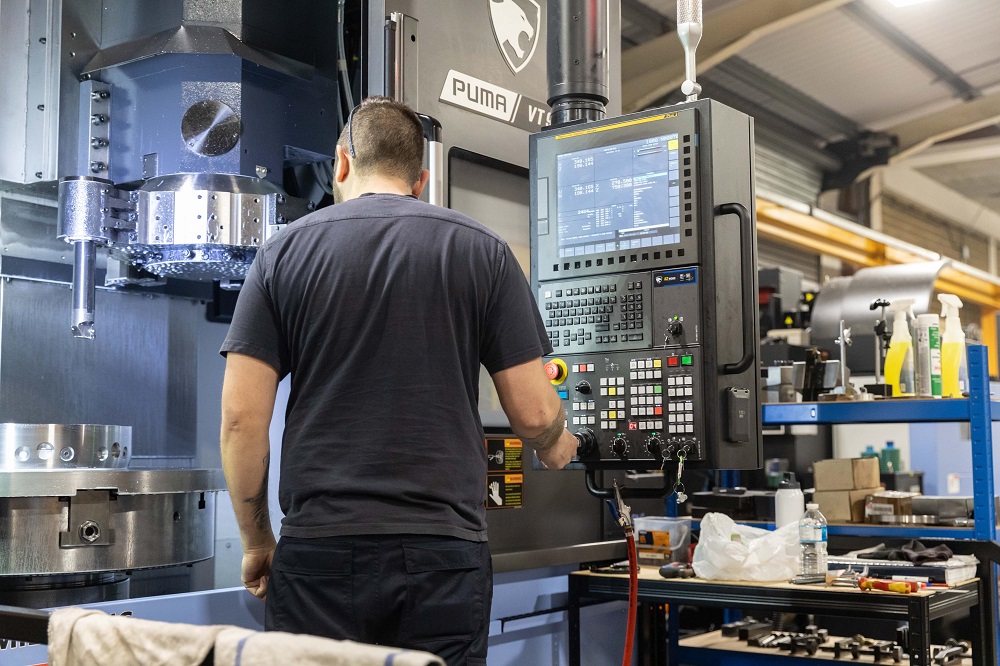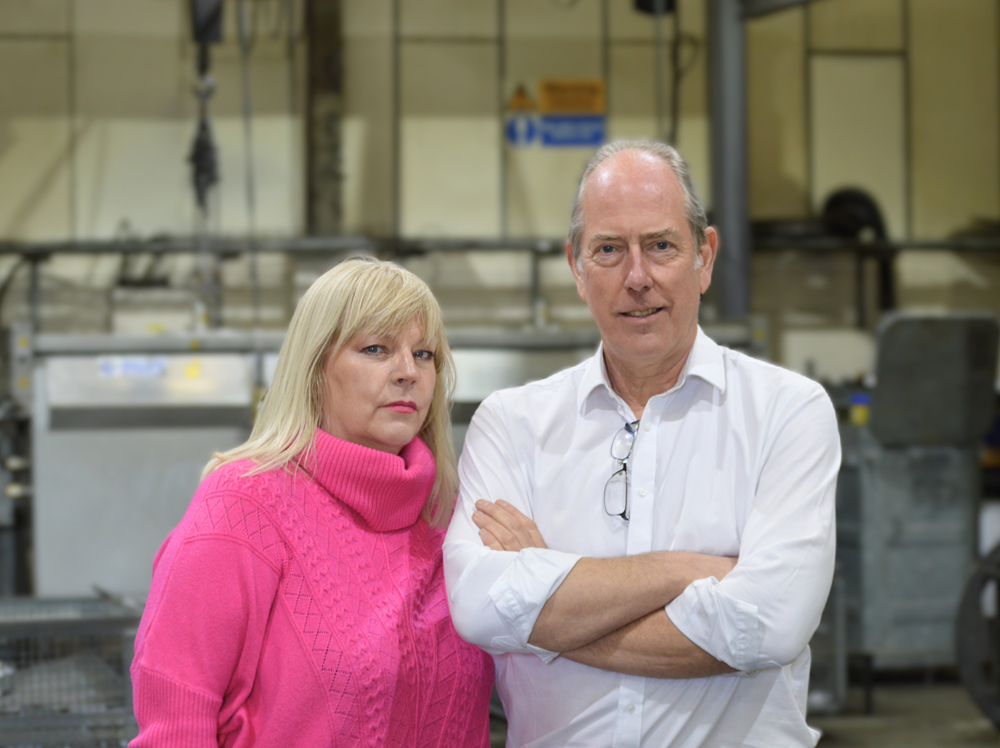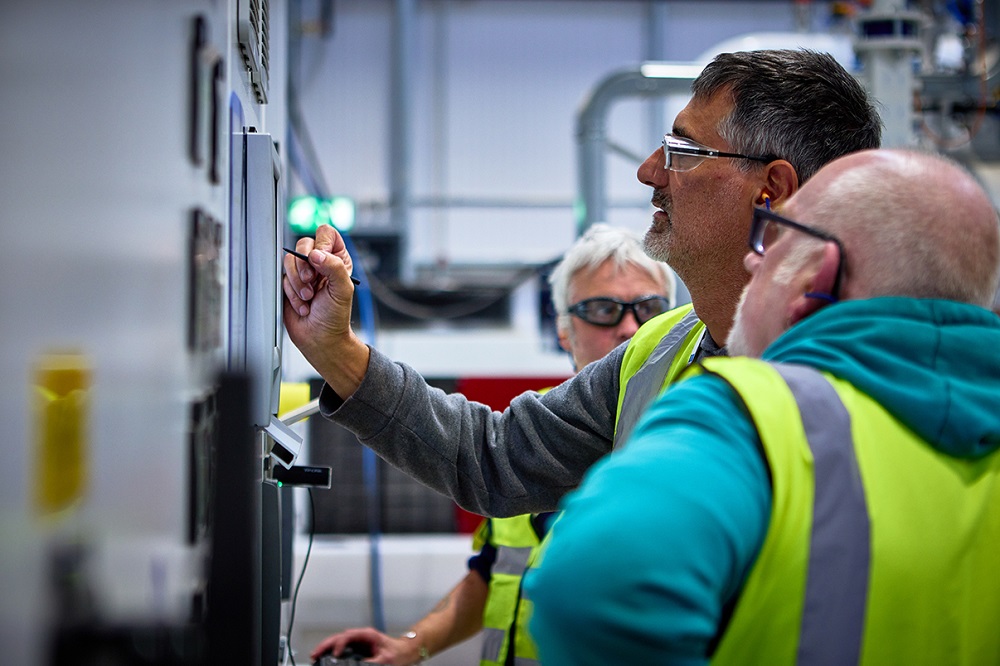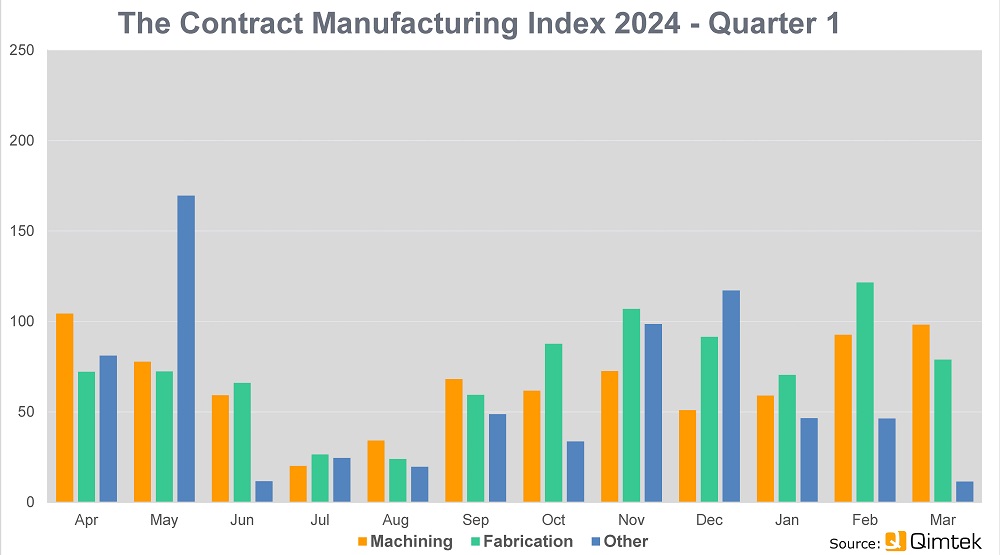Mills CNC, the exclusive distributor of machine tools by DN Solutions and Zayer in the UK and Ireland, has recently supplied subcontract specialist Markyate Precision Machining (MPM) with a new vertical turning lathe.The machine, a DN Solutions 32-inch chuck Puma VT 900, was installed at the company’s 9000 sq ft facility in St Albans, Hertfordshire in July 2023. MPM is currently putting the Puma VT 900through its paces by machining a range of large, complex components primarily for the oil and gas sector.
Made from hard and difficult-to-machine materials that include stainless steel, MPM machines these parts in small batches to tight geometric tolerances and exacting surface finish requirements.The investment in the VT 900 was made primarily to enable MPM to bring this type of large oil and gas work back in-house. In particular, the decision helps illustrate and underscore the company’s future ambition to focus on high-precision machining of medium-to-large components for a range of industries.
Says Dean, MPM’s operations director:“The VT 900 is a rigidly-designed and built box guideway vertical turning lathe with a 900mm maximum turning diameter and an 850mm maximum turning length/height.The machine’s large working envelope and its 45kW/1800rpm/4443Nmspindle make it ideal for the heavy-duty turning operations and the machining of large components, which we see as a high growth area for the business moving forwards.”
Continues Bygate: “The VT 900 delivers power, speed, precision and machining flexibility. Furthermore, we receive Mills CNC’s aftersales support services – such as machine tool servicing, operator and programmer training, and replacement parts – which we can’t fault. This was a key factor in our decision-making process.”
To help improve MPM’s productivity and process efficiencies, Mills CNC supplied the machine with through-spindle-coolant capability (70bar), a manual tool setter, an automatic door facility and a Filtermist extraction unit.
The VT 900 might be the latest machine tool MPM has acquired from Mills CNC, but the relationship between both companies stretches back seven years to 2017, when the company invested in its first Doosan machines: a large-capacity Puma 400 lathe, a box guideway Puma GT 2600 lathe and a DNM 4500 three-axis vertical machining centre.Since then, more investments have followed, frequently and regularly.
To upgrade and help strengthen its small turned part processing operation, MPM invested in two Lynx 2100B lathes with bar feeders in 2020 and, a year later, to help meet a significant increase in demand from an existing customer, seven more (Doosan) machines arrived.This latest haul included two new DVF 5000 simultaneous five-axis machining centresthat have helped MPM achieve improved process efficiencies by reducing the number of machining operations (from two down to one) on particular high-precision components.Once machined, surface treated and painted, these parts are assembled to create high-strength, anti-corrosion undersea housings and enclosures.
“Demand from our international submarine customer really took off in 2020/21,” says Bygate. “Prior to then we were making and supplying 18 completed assemblies a week, but this increased dramatically in 2021, requiring us to supply 54 completed assemblies a week. This 200% increase was a tall order, and it soon became clear that to meet our customer’s new expectations we needed to increase our in-house machining capacity and capabilities, fast.”
MPM approached Mills to discuss how best to go about this task, which resulted in the company placing orders for seven new machines that, in addition to the two aforementioned DVF 5000 machining centres, also included three new lathes – a Puma 4100, Puma GT 3100 and Lynx 2100B (with bar feeder), and two new DNM 4500 machining centres.
“Doosan machines are reliable and deliver excellent cutting performance,” says Bygate.“They help us achieve and maintain quality, and ensure that we can hit the often stringent delivery schedules of our customers.Furthermore, owing to the stocking policy of Mills CNC, machines are often readily available. This is a particular strength that Mills has over many other machine tool suppliers, and is another reason why they are our first port of call.”
MPM is a family-owned business that was first established in the 1950s.The company has a rich pedigree and a reputation based on innovation, engineering excellence, continuous improvement and customer service.Currently employing 24 members of staff (19 in production-based operations), the company regularly invests in its people, plant and equipment, and in its processes and systems.
The company runs a successful apprenticeship programme in conjunction with Milton Keynes College which has helped MPM considerably reduce its age profile and address potential skills shortage issues that could affect growth and performance in the future.
MPM has, in recent years, also introduced in a sophisticated MRP/ERP system to improve operational and process efficiencies. To improve component inspection, the company has invested in a portable Keyence benchtop CMM.
MPM operates across a number of sectors that include aerospace, defence, medical, marine, oil and gas, and machine building.In addition to machining high-quality components, the company also designs and manufactures advanced tooling systems and solutions for customers, as well as for its own use.
Along with CNC machining, MPM specialisms include turnkey projects, technical consultancy (including design for manufacture services), assemblies and sub-assemblies, and materials science.
Concludes Bygate:“We’re not your typical machine shop and can provide customers with a range of high-quality and integrated manufacturing services and specialisms.From prototyping and one-offs, through to small-to-medium batch processing, MPM has the knowledge, experience and technology in place to help customers make things better.Our investments in machine tools from Doosan and, more recently, DN Solutions, and the strong relationship we have built with Mills CNC, have made us more efficient, productive and competitive.”
For further information www.millscnc.co.uk



















